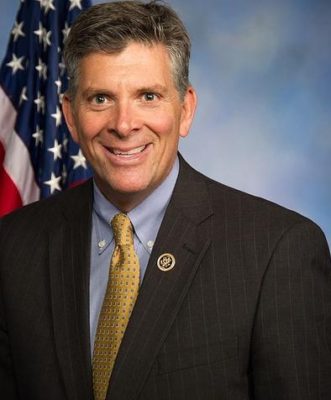US Speaker of the House Nancy Pelosi announced Tuesday that the USMCA will be called to the floor for a vote to ratify the new trade deal between the U.S., Mexico, and Canada. The agreement updates the 1994 North American Free Trade Agreement that many said was a poor deal for U.S. Farmers and Manufacturers. The Trump Administration has yet to release a final copy of the agreement that has been in the works since September of last year. The latest version, which was released in May, doesn’t include some new provisions made by House Democrats in recent weeks.
18th District Congressman Darin LaHood said he believes it holds in tact what people saw in May with Democrats making changes to Mexico’s labor provisions among other, what LaHood called, “minor changes.” He said that 90% of what President Trump negotiated was still in the bill.
LaHood believes that farmers will now have an easier time bringing their products to the world’s markets, touting the Midwest’s ethanol and pork production as some of the best in the world. He says that the USMCA will further open up trade markets for the U.S.’s two largest trade partners in Canada and Mexico. LaHood cited how dairy farmers in the United States will now have easier access to Canada’s market and Mexico will have more access to the Midwest’s vibrant grain markets.
LaHood says it sets a precedent for further agreements with other countries like China and the recently negotiated trade deal with Japan.
LaHood says that NAFTA simply was outdated and the new agreement, which has a provision to be negotiated again in 6 years, will continue to help all three countries trade partnership. LaHood says that USMCA now protects cyber security, intellectual property, and Internet trade between the two countries – something he says NAFTA never was able to touch upon. “98% of the corn that Mexico imports comes from the United States and primarily the Midwest. Their drive for more corn continues to grow as their agriculture industry continues to expand,” LaHood said.
LaHood says that as Mexico prospers, it may curtail some of the illegal immigration problem, making the USMCA a good side effect to that issue. LaHood also said that the deal makes it easier for Mexican labor to unionize to make for better labor standards in that country. He also said that country of origin requirements will also help stop some outsourcing of manufacturing jobs in the United States. The biologics protection for big pharmaceuticals has been stricken from the deal at the behest of Illinois Senator Dick Durbin and others, making way for the possibility of more cheaper, generic prescription drugs. Increased environmental protections, currency manipulation protections, and tariff protections round out some of the rest of the language of the bill. Senate Majority Leader Mitch McConnell said this morning that the Senate would not be voting on this deal before the end of the week. The only question that remains is when will the deal be signed and when the new provisions will take effect.




